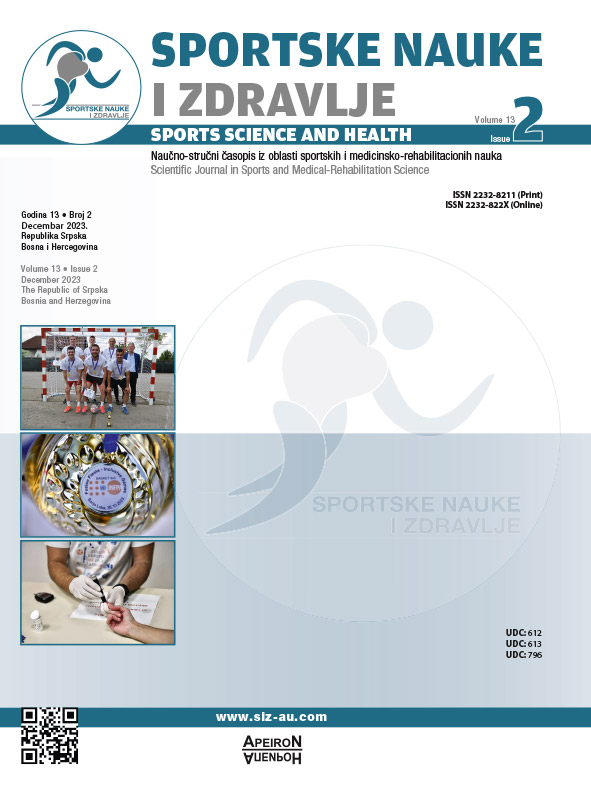An Examination of an 8-Week Online Activity-Specific Skills Program to BMI of Local College Students
DOI:
https://doi.org/10.7251/SSH2302133LAbstract
Requiring college students to participate in basic resistance training movement patterns and locomotor and non-locomotor exercises has decreased and improved BMI. This study aimed to examine the effectiveness of the online activity-specific skills program to college students’ BMI. This study has employed an experimental research design in which the students undergo a series of activity-specific skills for eight consecutive weeks. Demographic characteristics such as gender, BMI (pre- and post-test), and the Physical Activity Readiness Questionnaire are all included. Independent Sample T-Test was utilized to determine the significant difference based on the post-test scores of the participants concerning gender. Lastly, the Paired samples T-test was executed to the significant difference in the pre-and-test scores of the participants. It was found that no significant difference was observed in the pre-test scores of the participants; lastly, after performing the Paired samples t-test, it was found that there was no significant difference observed between the pre-and post-test score of the participants after performing a series of activity-specific skills activities for eight weeks. Students’ body mass indexes were not affected by the movement patterns taught in PE 1, which included locomotor, non-locomotor, and basic resistance training. The results of this study may encourage teachers to reevaluate the efficacy of the existing physical education practices or to look for alternatives that have better potential to reduce students’ BMI. Since the study’s findings are inconclusive, more research with a larger sample size is required to establish the reliability of the claims presented herein.
